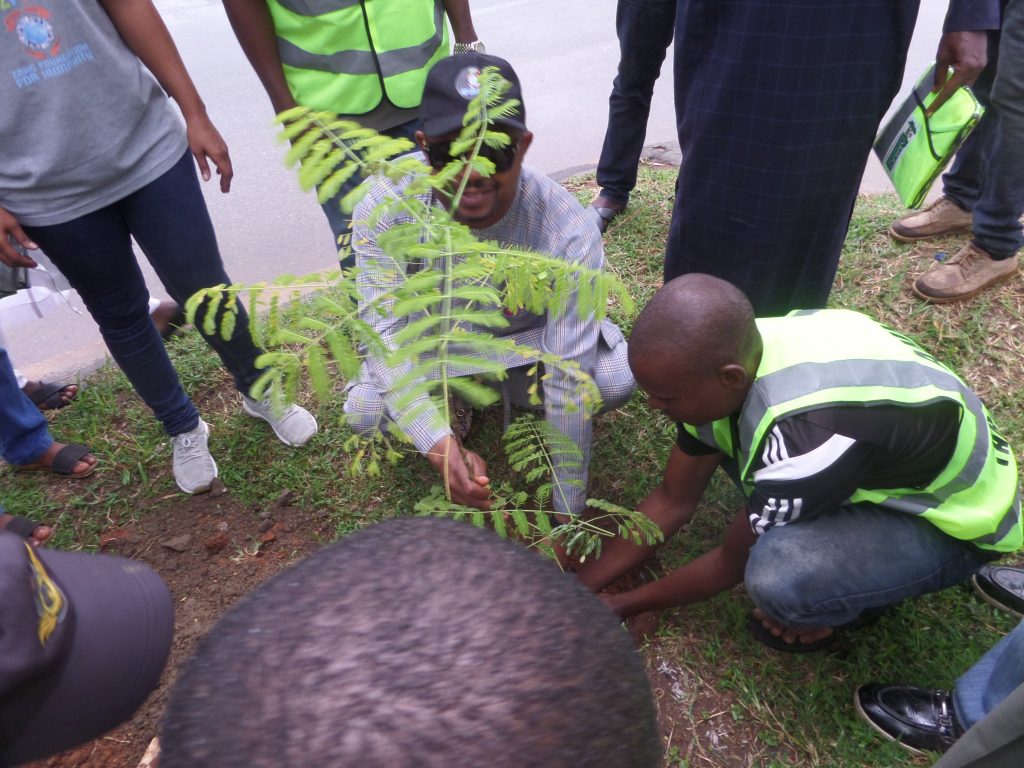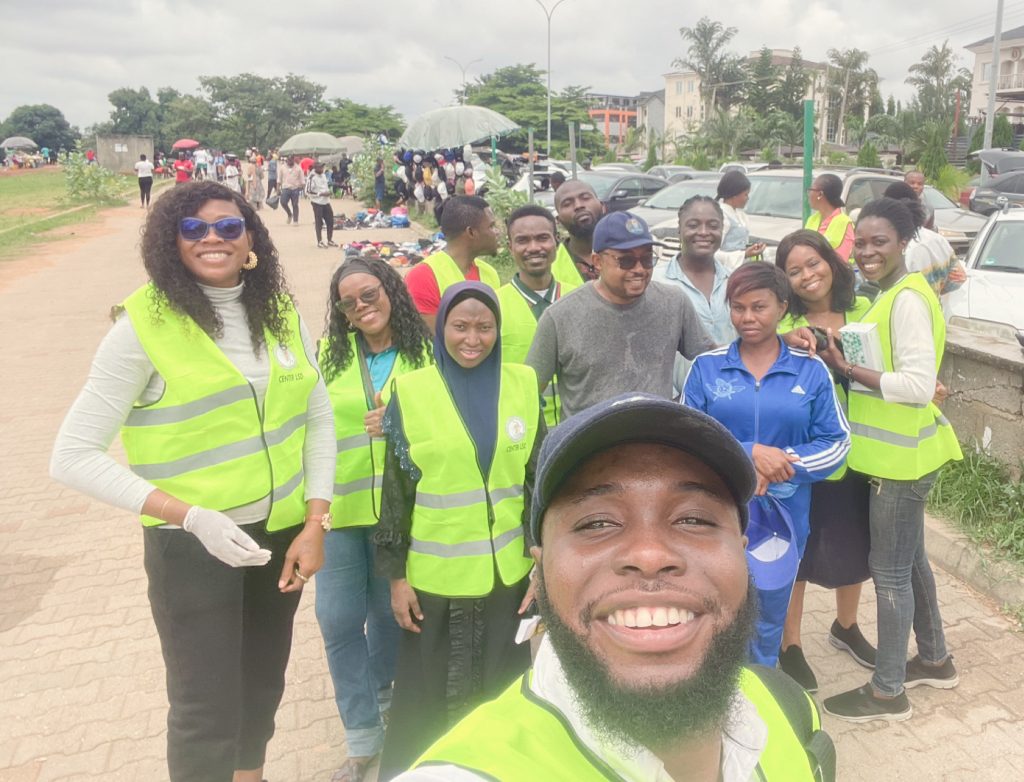Maryam Aliyu.
Introduction
World Environment Day 2024 focuses on “Land Restoration, Desertification, and Drought Resilience,” which emphasizes the importance of restoring degraded land and building resilience against droughts and desertification. Land degradation directly impacts people’s lives and livelihoods, threatening water and food security and contributing to displacement and migration. Addressing these challenges is crucial for achieving sustainable development goals (SDGs) and ensuring a stable and prosperous future for all.
Understanding Land Degradation and Its Impact
Land degradation, caused by factors such as deforestation, unsustainable agricultural practices, and climate change, results in the loss of fertile soil and biodiversity. This degradation exacerbates desertification and drought conditions, which in turn threaten water and food security. Examples abound in Africa:
soil erosion in the Ethiopian highlands, nutrient depletion in the savannas of West Africa, salinization in the Nile River Delta, etc. In Nigeria, there are serious soil erosions in the Niger Delta region, nutrient depletion in the Guinea savanna region of the country and the unfortunate salinization in the Sokoto-Rima River basin. Desertification is also a major concern. Examples in Africa: overgrazing in the Sahel region, deforestation in the Congo Basin, climate change in the Horn of Africa. Nigeria has a myriad of desertification challenges like overgrazing in the arid regions of the Northern Nigeria, deforestation in the Cross River National Park, climate change in the Lake Chad region, leading to a rapid decline in the waters.
Drought has also played a significant role in the climate crisis. Prolonged lack of rainfall, water scarcity all significantly impacts on agriculture and human settlements. In Africa for example, the Horn of Africa drought of 2011-2012 readily comes to mind.
The Cape Town water crisis of 2018
and the Lake Chad basin drought of 2016-2017 are still fresh in our collective memories. In Nigeria, there were the 1983-1984 drought that affected agriculture, the 2016-2017 drought that affected livestock production and the ongoing drought in the northwestern region. Globally, millions are displaced each year due to these environmental disasters, which highlights the urgent need for comprehensive land restoration efforts. As arable land becomes barren, communities face increased poverty, unemployment, and forced migration. Zaks Foundation for Humanity is currently collaborating with local, state and federal government agencies to tackle this hydra headed problem.
The UN Decade on Ecosystem Restoration
The UN Decade on Ecosystem Restoration (2021-2030) calls for the protection and revival of ecosystems worldwide. This initiative aims to prevent, halt, and reverse the degradation of ecosystems, and ensure sustainable development and climate resilience. Restoring degraded land is a key pillar of this global effort, vital for achieving SDGs, including SDG 15 (Life on Land), SDG 13 (Climate Action), and SDG 2 (Zero Hunger). Zaks Foundation for Humanity is at the forefront of fighting hunger in Nigeria with its Nutritional Assistance Program (NAP).
Global and Regional Efforts
Across the world, various regions are making significant strides in land restoration and drought resilience. In Africa, initiatives such as the Great Green Wall aim to restore 100 million hectares of degraded land by 2030, creating green and productive landscapes across the Sahel region. This project not only combats desertification but also creates jobs, improves food security, and enhances climate resilience for millions of people.
In Nigeria, the government and local communities are actively involved in land restoration projects. The National Agency for the Great Green Wall (NAGGW) spearheads efforts to combat desertification, restore degraded land, and improve livelihoods in the arid and semi-arid regions of the country. By planting trees, promoting sustainable agricultural practices, and building water conservation structures, Nigeria is making gradual progress in reversing land degradation and building resilience to droughts. But it needs to step up its efforts.
Achieving the Goals of World Environment Day 2024
To achieve the goals of this year’s World Environment Day, several strategies can be implemented:
1. Promoting Sustainable Land Management: Adopting practices such as agroforestry, conservation agriculture, and integrated water management can enhance soil fertility, improve water retention, and increase agricultural productivity.
2. Reforestation and Afforestation: Planting trees and restoring natural vegetation can help combat desertification, sequester carbon, and provide habitat for wildlife.
3. Strengthening Policy Frameworks: Governments should develop and enforce policies that support sustainable land use, protect natural resources, and incentivize restoration efforts.
4. Community Engagement and Education: Raising awareness and involving local communities in restoration projects ensure that efforts are sustainable and culturally appropriate.
5. Leveraging Technology and Innovation: Utilizing satellite monitoring, drones, and data analytics can enhance the efficiency and effectiveness of land restoration initiatives.
Finally, World Environment Day 2024 highlights the critical need for land restoration, desertification mitigation, and drought resilience. As we work towards achieving these goals, it is essential to recognize the interconnectedness of environmental health and human well-being. By restoring degraded lands, we can secure water and food resources, reduce displacement, and create sustainable livelihoods. Let us join hands in this global effort, embracing the theme of this year’s World Environment Day, and commit to a future where our ecosystems are thriving, and our communities are resilient.
For more information on our efforts and how you can contribute, visit our website at :www.zaksfoundation.org
If we embrace these principles and foster international cooperation, we can collectively work towards a sustainable future for all. WE NEED THE PLANET. 🌍THE PLANET DOES NOT NEED US!
Maryam Aliyu is the Secretary of Zaks Foundation for Humanity





Wonderful job.keep it up.please how can I be a volunteer?am passionate another environment.
Thanks for your feedback. Contact us on our Instagram and Tiktok pages @ zaksfoundationforhumanity